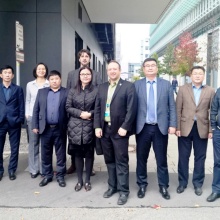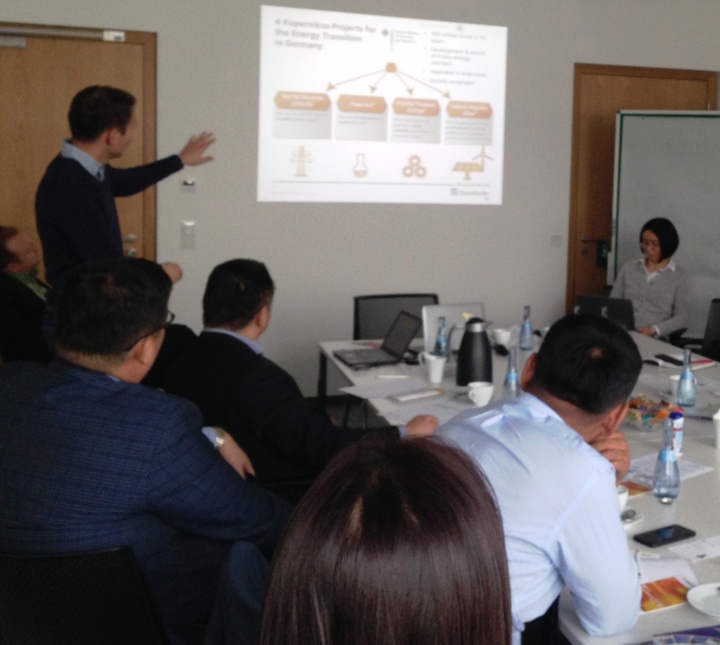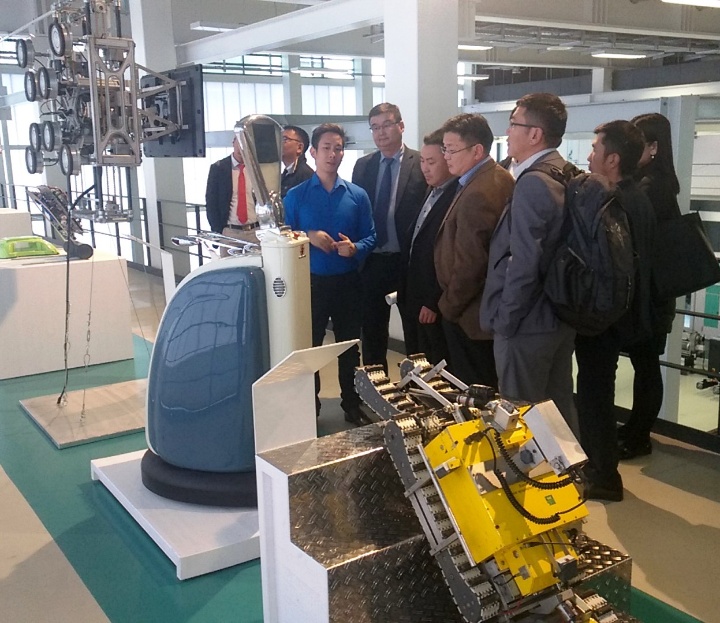A Mongolian Government Delegation has today visited EEP & Fraunhofer IPA in the context of a GIZ-Study Tour in Germany to get informed on the state of and approaches towards industrial energy efficiency, as well as to get inspiration for the implementation of the first Mongolian Energy Efficiency Action Plan.
Aside currently ongoing negotiations on European level for a binding 30% energy savings target, the representatives of the Mongolian Ministry of Energy and the Energy Regulation Commission have experienced how varied the structure of energy consumption is across Europe and Germany, including the challenges the German Government is faced with in the context of achieving its Energiewende goals. “Particularly the area of heat which makes up 2/3rd of industrial energy consumption is largely neglected” says Stefan M. Buettner, EEPs Head of International Affairs & Strategy. “Politics provide a broad and innovative array of programs and activities that, nevertheless, do not lead to sufficient impacts” Buettner continues.
More than half of global potentials to utilize energy more efficiently are situated in the industrial sector which is exactly why much more needs to happen there. The demand side, this is the broad facet of companies, needs to be better understood and addressed so that entrepreneurs consider the implementation of economic energy efficiency measures as a simple, safe and obvious choice to pursue.
On the basis of current projects, particularly the Energy Efficiency Barometer of Industry, Ms Dipl.-Wi.-Ing. Diana Wang explained to the GIZ delegation how the figures, data and facts gathered by EEP and its partners can help to solve this issue: “Particularly the inclusion of staff, as well as a higher rate of implementation of possible measures lead to a higher rate of success of measures undertaken.”
The Mongolian delegation that came to Germany in the context of the international cooperation for sustainable development programme of the Federal Ministry for Economic Cooperation and Development (BMZ) further described their current challenges and gave a glance of their new energy efficiency action plan. The Mongolian representatives underlined the challenge arising from low energy prices which burden investments into energy efficiency as payback times in consequence are considerable longer.
On basis of the issues raised, Dipl.-Ing. Max Weeber of the Efficiency Systems division of Fraunhofer IPA, underlined particularly one thing: „very large potentials lie in organizational measures and control system optimizations. In many cases it is possible despite very limited hardware interventions to realize substantial savings through a modification of control- and adjusting set points alone – in other words “quick wins”. This reduces the efforts and costs whilst shortening payback times – a key takeaway for the delegation as the success of the Mongolian energy concept depends on quickly visible successes. This, so a representative of the GIZ, is a precondition to create a broad acceptance also for longer-lasting measures. From what they have learnt, EEPs energy efficiency barometer of industry (EEBI) can be of great use for the implementation of the Mongolian efficiency action plan.




